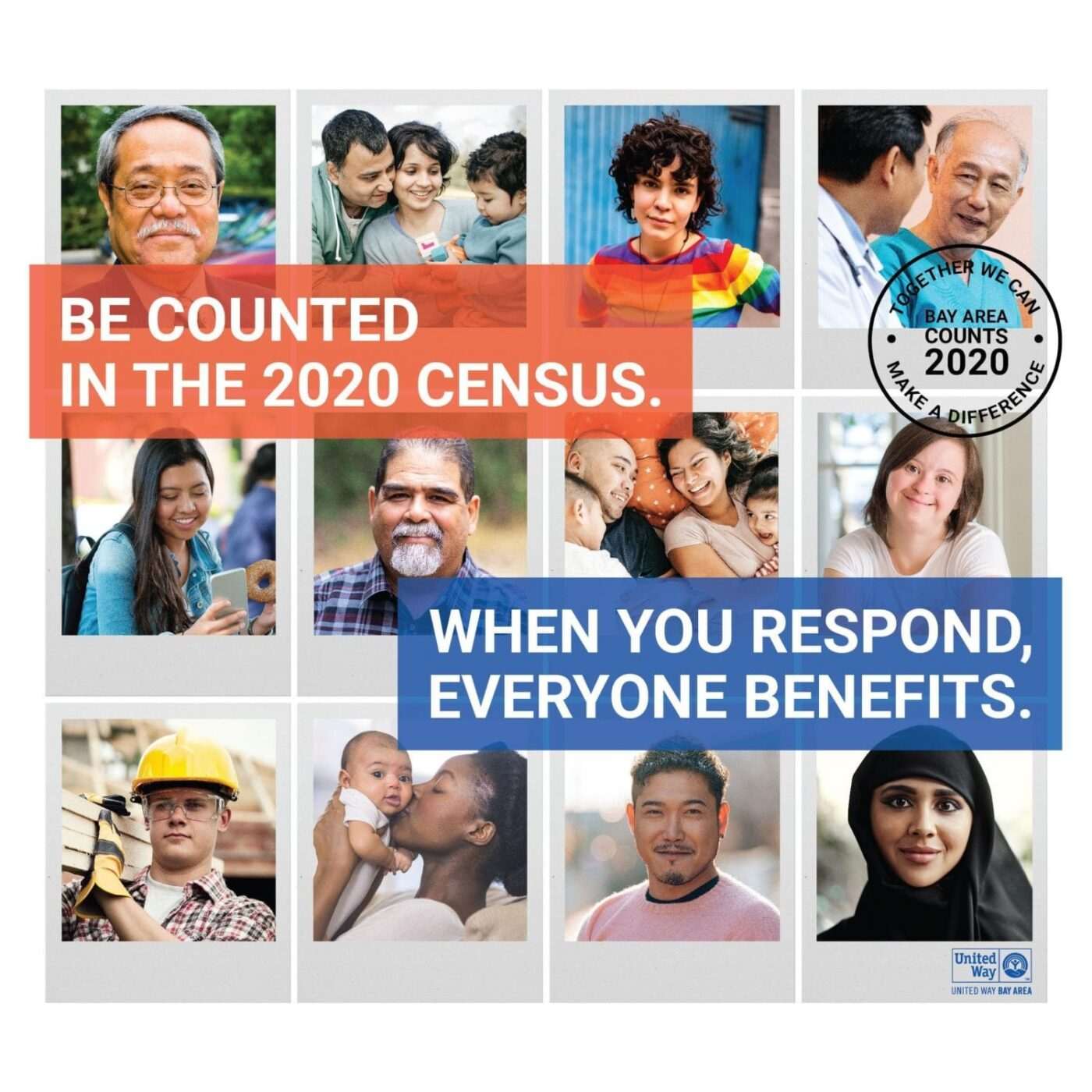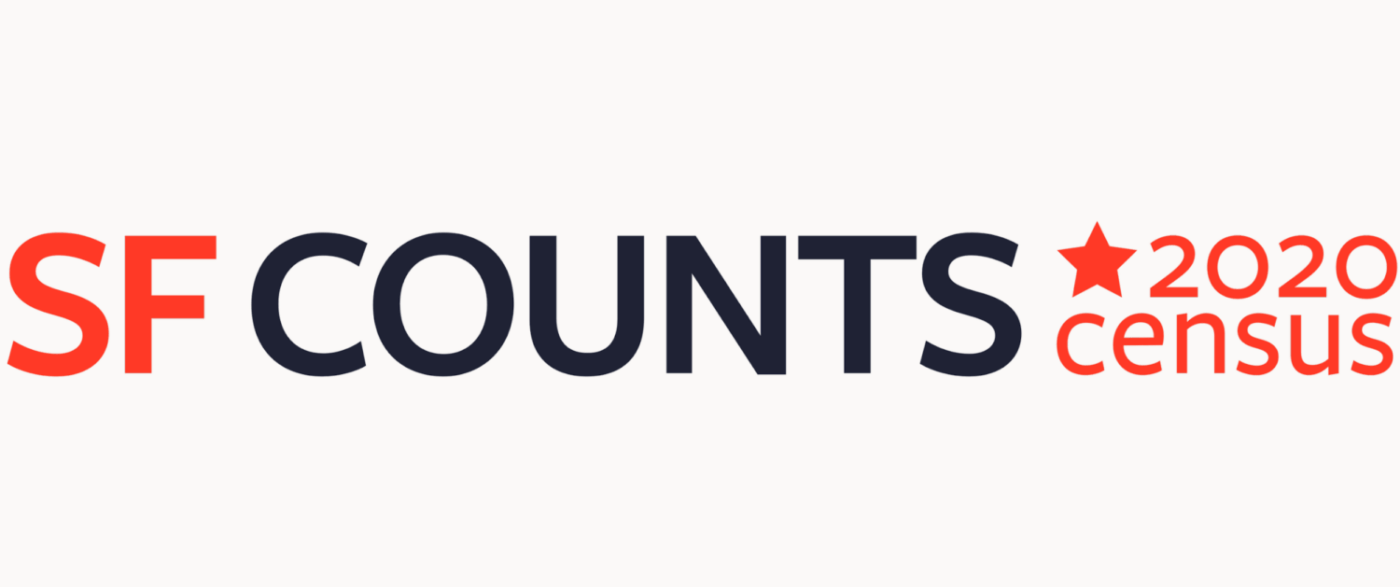by Rosina Ghebreyesus
Among other reasons, many residents of the Bayview, Tenderloin and Mission report not being counted in the census because they didn’t have time or had a fear of the Census Bureau not upholding privacy rules. Some have language barriers, and for many, their address changes frequently.
What people may not know about the census is that it can alleviate common stressors in one’s life. If you are from a community that doesn’t have many job opportunities, the schools aren’t up to par, the roads are full of potholes, or there aren’t enough clinics near you – if all this adds unwarranted stress to your life – getting counted can help.
The census determines the federal government’s allocation of funding to our state of California and to all states based on their population size. So the more people counted in the census, the more money is doled out to reduce your stress and increase the opportunities in your life.
Census data determines not only federal funding for your state but also how much political representation it gets. The recorded population, counted in the census every 10 years, determines the number of people representing your state in the House of Representatives in the U.S. Congress.

The smallest states – Wyoming, Vermont and Alaska – have only one seat in the House. California has 53, but if every Californian is not counted in the 2020 census, that number could go down.
The more representatives a state has, the more successfully those reps can advocate for their state’s fair share of funding. Everyone wants full funding for building and repairing roads, schools and enough affordable homes so every family can be housed, for creating jobs and for expanding needed community programs.
For example, a complete census count of every single person in your city can mean that libraries in your neighborhood gain more funding so they can extend their hours and maybe even refurbish the space to make it more inviting for you and your children. Schools can get more funding for teachers, special education and more after-school programs that explore creative arts, physical fitness and science.
. . . in the case of the census, not getting counted only hurts our families and communities.
The bigger the population, the more funding! If you are not counted, your community appears smaller than it really is and the money allocated to your community will be a smaller amount as a result. Each person not counted in the 2020 census can mean a loss of $1,000 in community funding every year, increasing that loss to $10,000 over the span of 10 years until the next census.
The barriers to being counted in the census only grow when our hard-to-count communities don’t have the facts on how to get counted and why it benefits us, making the issues we care about that much harder to solve without proper funding.

The United Way Bay Area (UWBA) has made hard-to-count communities a priority by actively working to make the facts of the census known. Still, information gets missed, so here is what you want to know:
- No matter your legal status in the United States, you can still be counted.
- You don’t have to be related to someone to count them when reporting your household – what counts is the number of residents at an address.
- Who gets counted? Everyone, including babies, children, seniors, formerly incarcerated folks, immigrants and homeless people.
- Forms come in multiple languages, so, if you prefer, you can get counted in your native language. Languages range from the more common Spanish, Chinese and Tagalog to Semitic languages like Tigrinya and Arabic.
Under Title 13 of the U.S. Code, the Census Bureau is bound by law not to share any information collected. No other government entity has access to census information. That includes federal agencies like ICE as well as local police – they have no access, and neither do landlords. Here are some safety precautions to take when responding to the 2020 census.
- The census never asks for your social security number (SSN), bank account or credit card number. Nor will they never ask for donations. The Census Bureau is funded by the federal government.
- Census employees are the only ones sworn under oath to protect the privacy of your information for life. Don’t allow anyone else to enter your information.
- Verify door-to-door census takers’ identity by asking to see their ID badge, which will have their photo, the U.S. Department of Commerce watermark and an expiration date.
The Census Bureau can use your response only to compile general information and statistics about the population where you live. For example, they report the number of people who live in your city and statistics about ethnicity, gender and age; but they will never report your name or any other personal information.

If you or someone you know is experiencing homelessness, they can still be counted. San Francisco, like many cities, is filled with people who have lost their homes and jobs, making the streets they grew up around their new home.
For the census, everyone counts. Whether you’re living on the street, in a tent or in a vehicle, you can still get counted. Here’s how:
- Those experiencing homelessness can be counted at service locations like shelters, soup kitchens and temporary census counting stations.
- If you live in “transitory locations” such as a recreational vehicle or a motel, you can be counted there.
- If you live in group quarters, like nursing homes, correctional facilities or on-campus college housing, you can be counted from those areas as well.
- You are NOT required to have a census ID number or address to be counted. A census ID number appears on the census forms mailed out earlier this year, but it is not required for you to be counted.
The census reports its findings every decade at the end of the counting period. Those statistics become public record (without individual names) and are available to everyone. If you’re curious about how your community compares to others in matters like poverty, race or household size and composition, you’ll find it in census data.
It takes a lot of people to ensure a complete count, and some temporary jobs for the 2020 census are still available. Learn more and apply at https://2020census.gov/en/jobs.html. The Census Bureau offers numerous jobs that pay wages ranging from $25 to $30 an hour. The positions include office clerks, office supervisor, grassroots census recruiters, enumerators and field supervisors. There are many entry-level positions that offer paid online training, making these opportunities accessible to many.
The last official date to be counted in the 2020 census is Oct. 31, but United Way Bay Area encourages everyone who can respond to do so right away. Census takers will begin non-response follow-ups in mid-August.
A part of the non-response follow-up process requires enumerators to knock on doors looking for those who have not responded, so be sure if someone comes to your home, verify their ID and don’t be afraid to give them your info so your community can get every dollar it deserves.
Trusting government agencies to do right by you when we’ve seen countless organizations do us so wrong has created an independent mindset, which can serve us well; we’ll get things done by any means. But in the case of the census, not getting counted only hurts our families and communities.
Your family, your friends and neighbors, your community – all your loved ones – are trusting you to make sure your whole household is counted. The money to make our lives a bit easier is out there for the taking, We can put it to use and start making our communities more healthy and prosperous. If not for yourself, do it for your children and for those that will come after us and continue our legacy.
Rosina Ghebreyesus is a Mills College undergrad studying journalism. She was born and raised in San Francisco, where she lives with her four siblings, mother and grandmother. Her family moved to San Francisco from Eritrea, East Africa, in the ‘80s. She can be reached at rosinag626@gmail.com.





